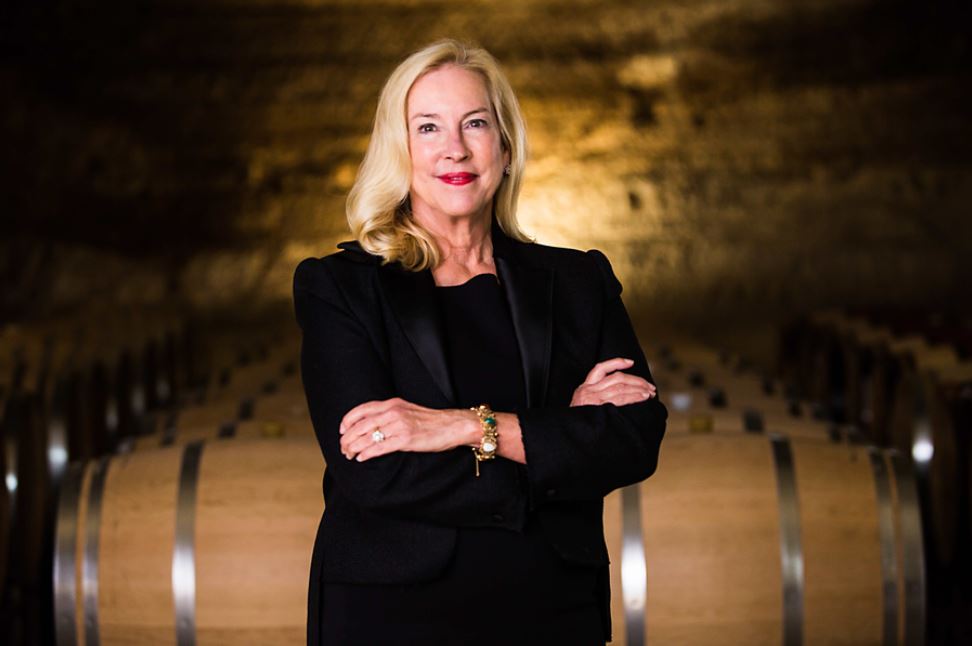NAPA, Calif., Nov. 14, 2023 /PRNewswire/ — Napa Green, a leading wine industry nonprofit, provides roadmaps, boots-on-the-ground consulting and certification services for regenerative viticulture, and sustainable, climate-smart winemaking. In keeping with a foundational principle, “Sustainability is a path, not a destination,” Napa Green is again leveling up leadership, requiring that members phaseout the use of glyphosate/Roundup by January 1, 2026, and ultimately, the full suite of synthetic herbicides by January 1, 2028.*
Napa Green is the first sustainable winegrowing certification program globally (of which there are ~20) to require the phaseout of glyphosate and synthetic herbicides. While a few wine regions have made specific glyphosate-free/organic commitments, these have not been made as part of a whole-systems approach to sustainability and climate action.
“I see this as an important step for Napa Valley,” says Andy Erickson, Board Chair of the Napa Valley Vintners and Co-Owner of Favia. “It makes perfect sense that our valley and community should be on the forefront of eliminating these herbicides and moving in a more sustainable direction. I hope this is just the beginning of an important movement.”
Napa Green has developed a “Weed Management Toolkit,” established a pool of matching funds that growers can apply for to support phaseout, and is planning a series of training workshops to assist members in this transition. There will be a limited opportunity for variances under exceptional circumstances where farm conditions make herbicide-alternatives cost-prohibitive.*
“If not here, where? If not now, when?” The mantra of Anna Brittain, Executive Director of Napa Green. “Our region and members have always been on the leading edge. Napa Green has rigorous standards for social justice and farmworker safety; herbicide phaseout is crucial to continued proactive leadership. We are no longer willing to defend the status quo on this issue.”
Beth Novak, President of Spottswoode Estate, shares, “We’ve been rallying our fellow winegrowers to eliminate herbicide and pesticide use. It is well known that synthetic herbicides harm our soils and water, and our air. If we want to maintain our hard-earned notoriety for exceptional wines, then we must take this opportunity to act.”
The good news is that there has already been a sharp decline in the use of glyphosate/Roundup by winegrape growers in Napa County. However, there has been a rise in the use of alternative herbicides like Lifeline. “There is a lack of public awareness that there is a suite of herbicides being used for agriculture, in part to try to address increasing weed resistance,” notes Brittain. “In some cases, growers turn to 2-3 other herbicides to try to match the effectiveness of glyphosate, which can have equal or greater environmental and human health risks.” Eliminating the use of glyphosate is not a silver bullet, which is why Napa Green will work with members to phaseout the use of all synthetic herbicides by January 1, 2028.
One of the main resistances to phasing out glyphosate is increased labor and equipment costs. However, the costs of herbicides and fertilizers have risen dramatically, so increased labor demands can be offset by reduced supply chain purchases. In addition, leaders like Grgich Hills Estate, a Napa Green member, have shown that regenerative organic farming can be cost-effective. According to an analysis by Brotemarkle Davis & Co. LLP accounting firm, the average annual per acre cost of vineyard management in the Napa Valley is $14,800, with $3,800 in depreciation. At Grgich, they spend $11,000 per acre, with only $1,300 in depreciation due to the longer life of their vineyards.
Ivo Jeramaz, Vice President of Vineyards & Production at Grgich, says, “Regenerative practices are a proactive approach to farm health. If you’re healthy enough you don’t get sick – you’re able to fight off pests and disease. It’s a paradigm shift.”
Join us for a Town Hall on Thursday, December 7 at St. Supéry Estate from 4:30-6:30 pm, and learn more at www.napagreen.org/toolkit.
*Select growers may submit a variance request if conditions such as >5% slope, rocky soils, and/or narrow vine rows make weed management labor cost-prohibitive. Requests will be considered by a peer review committee.
About Napa Green: Napa Green (501c3) is a global leader in sustainable winegrowing, setting the highest bar for sustainability and climate action in the wine industry. Napa Green facilitates whole-systems soil to bottle certification for wineries and vineyards, and provides the support, tools and connections to continuously level up leadership. In 2021, Napa Green was the first sustainable winegrowing program to redevelop Vineyard certification standards to focus on climate action, regenerative carbon farming, and social equity. In 2022 & 2023, Napa Green organized and hosted the first of its kind, six-event RISE Climate & Wine Symposium (formerly THRIVES) with over 65 leading speakers, 40 sponsors, and 750 guests.
Contact:
Anna Brittain
anna@34.229.46.156


